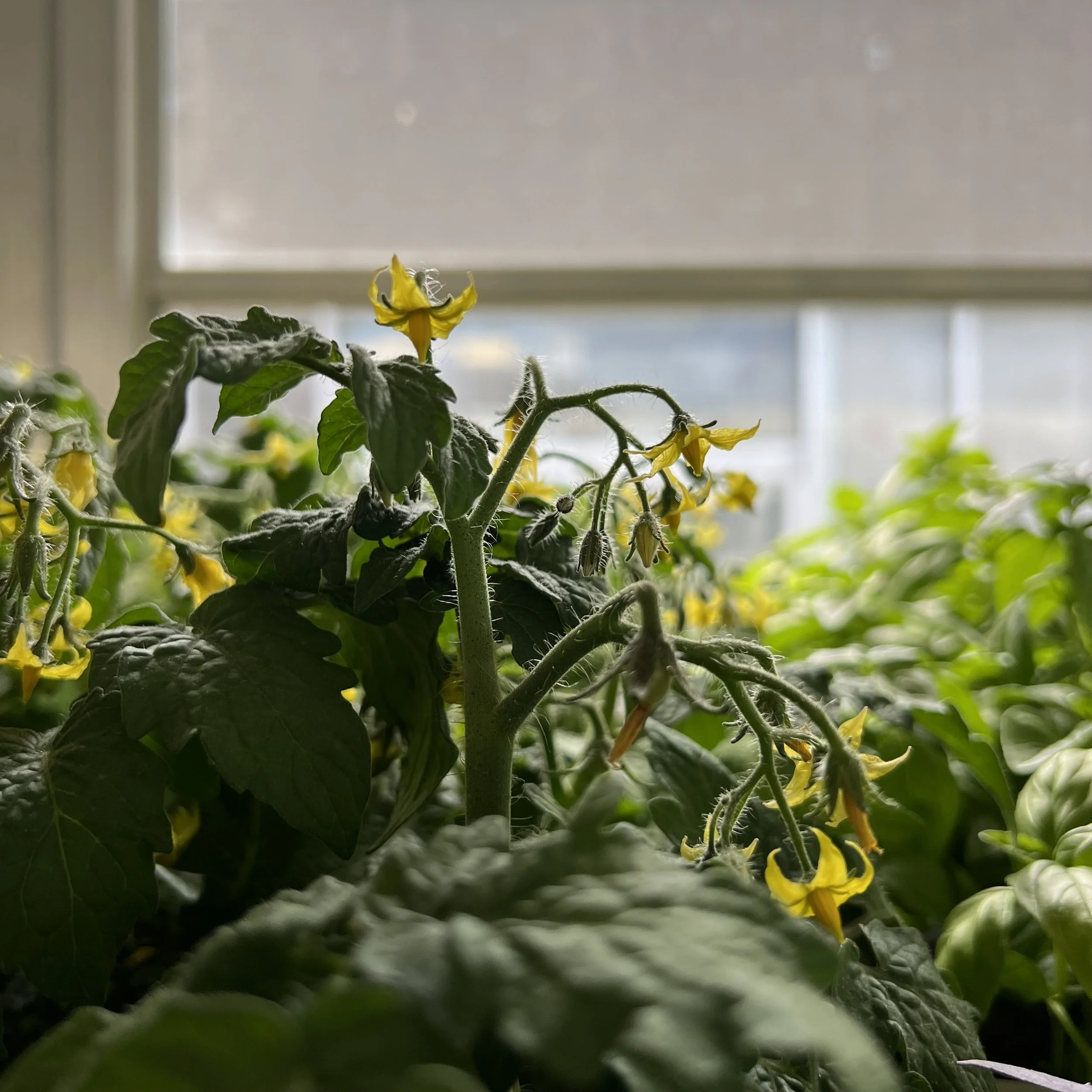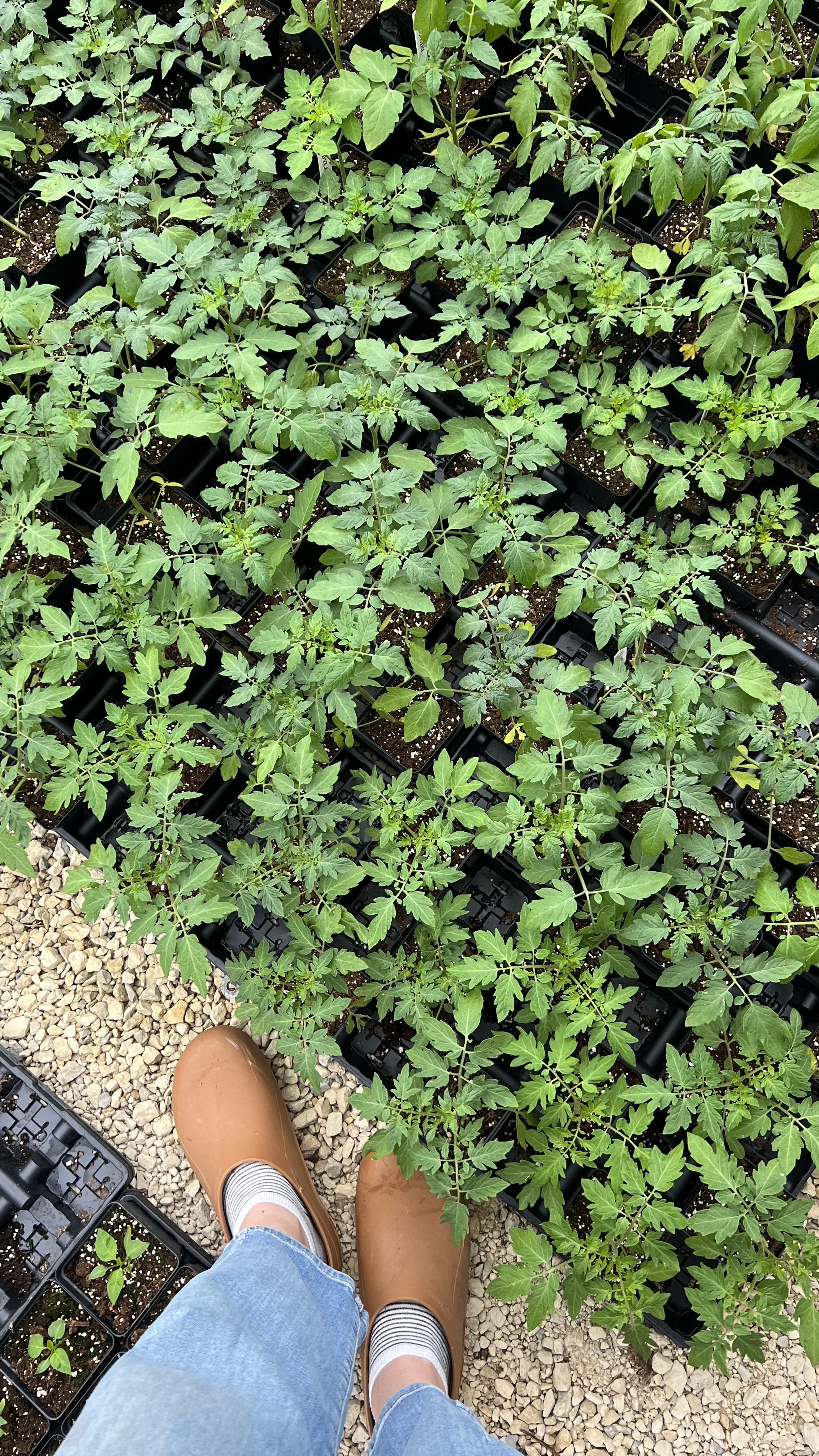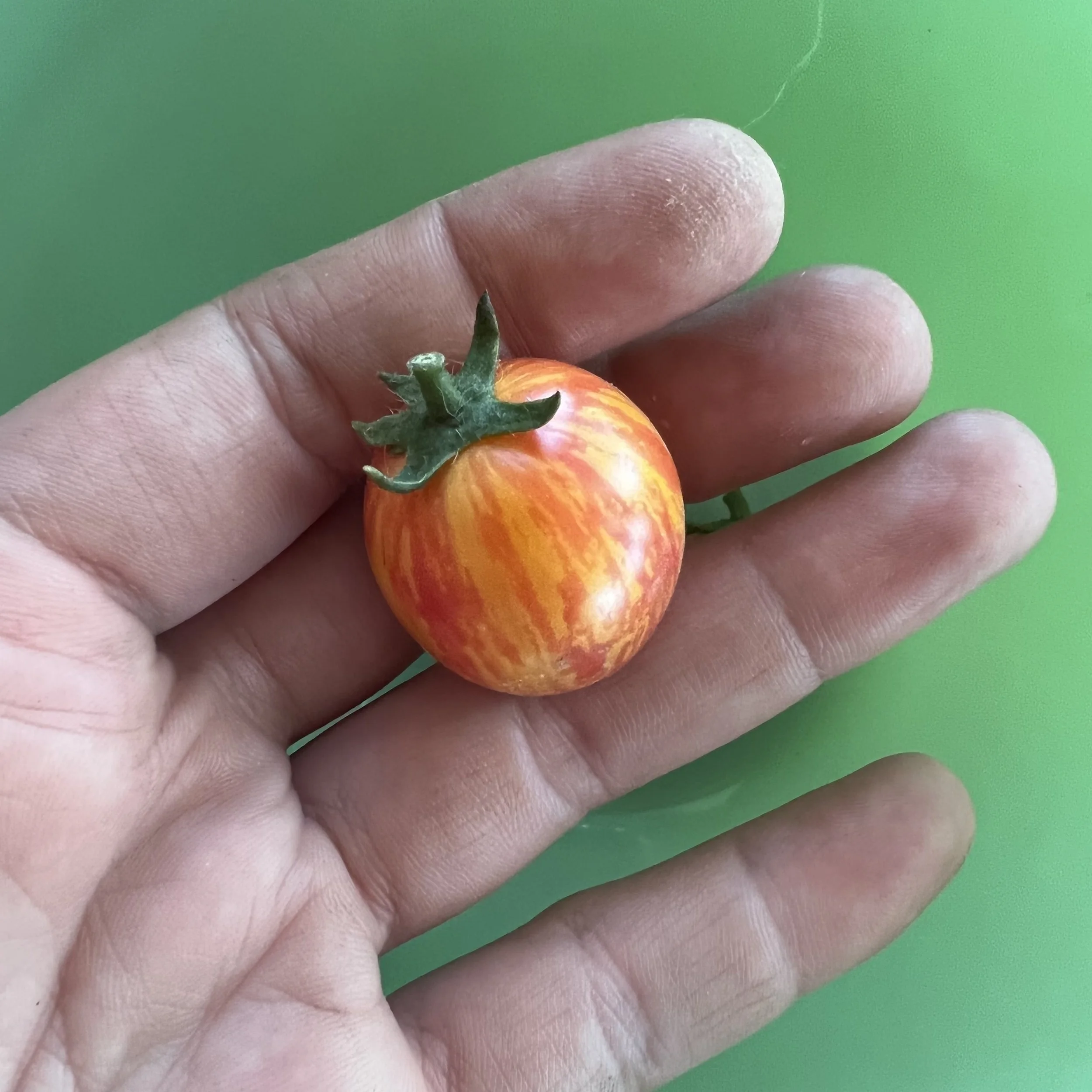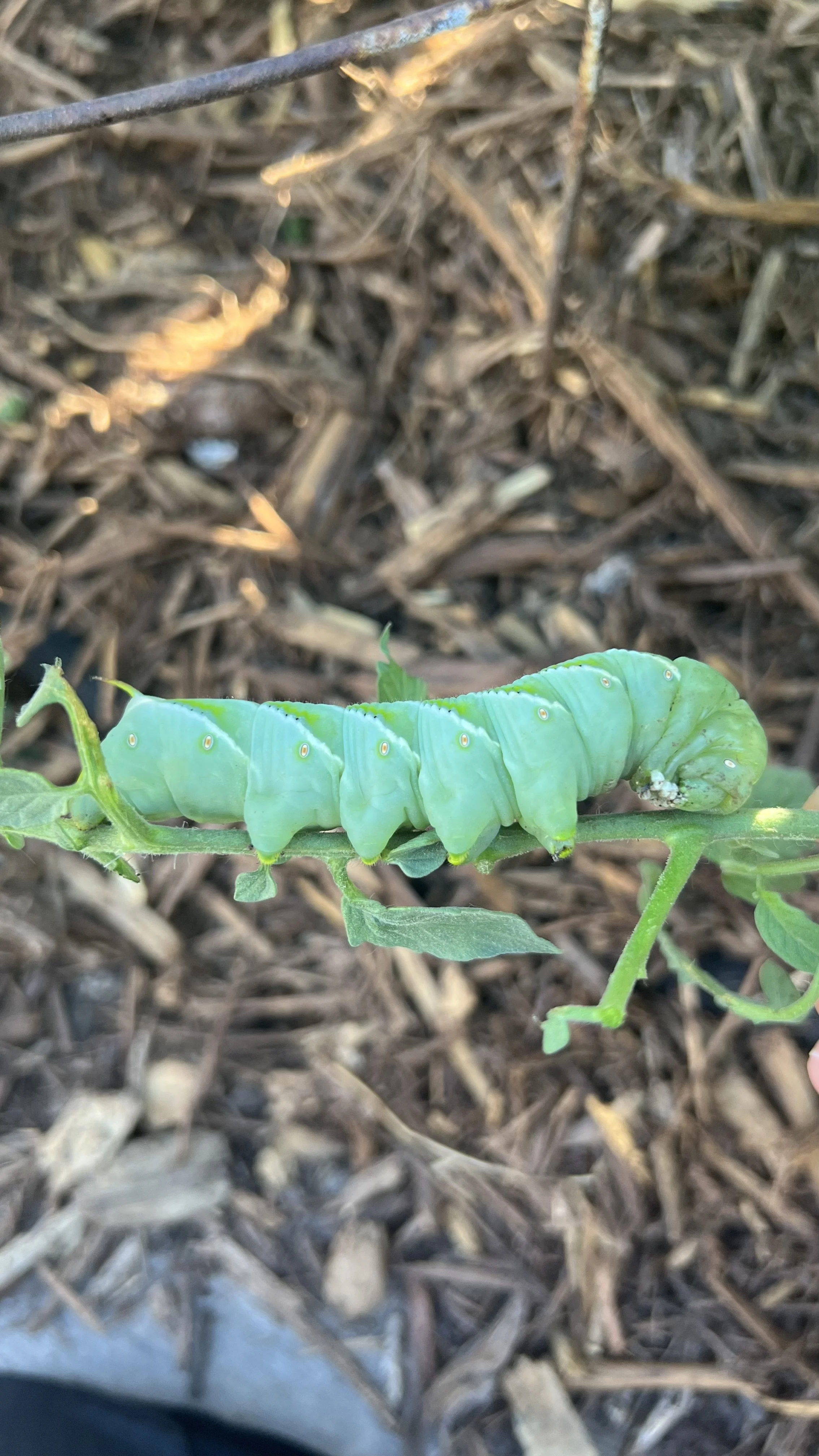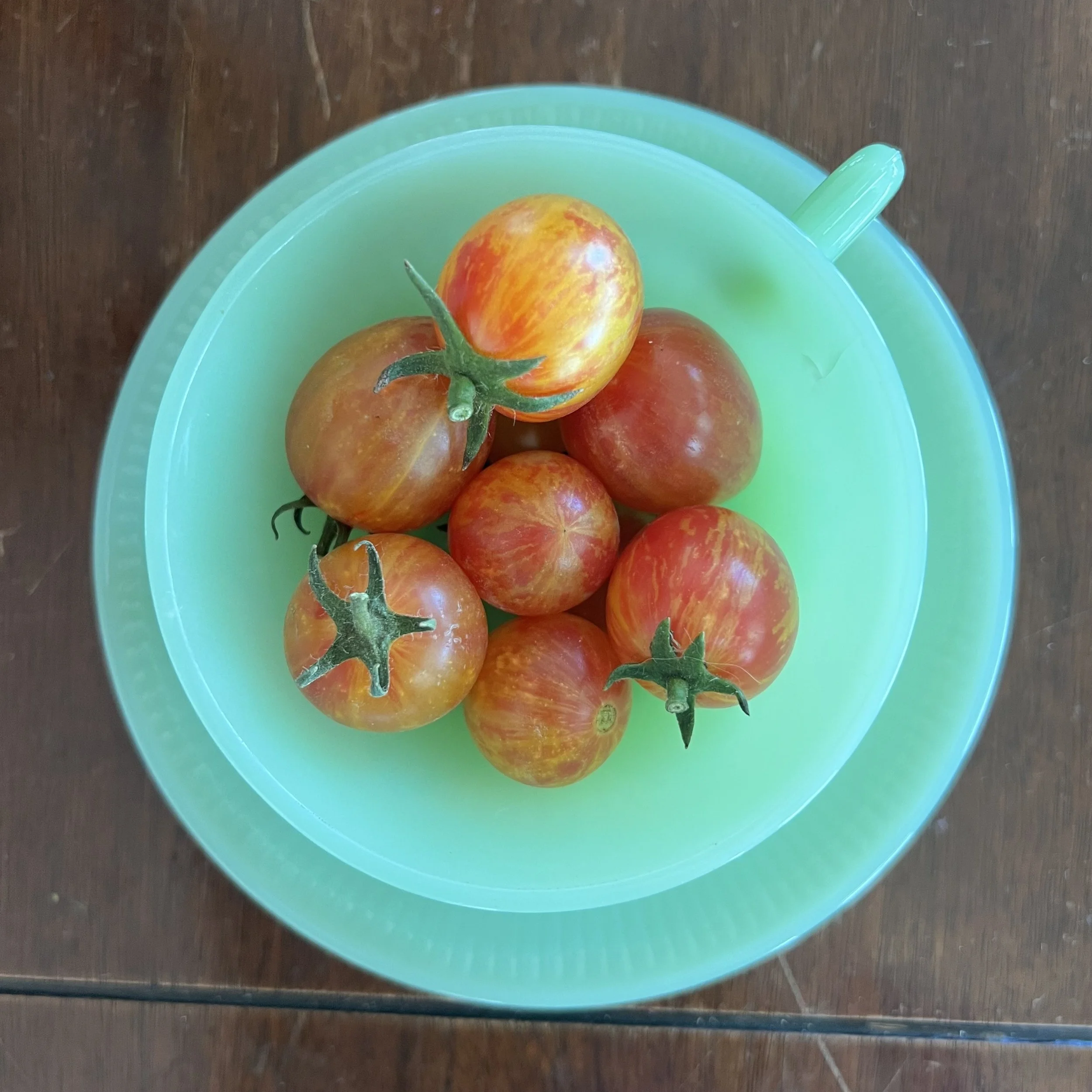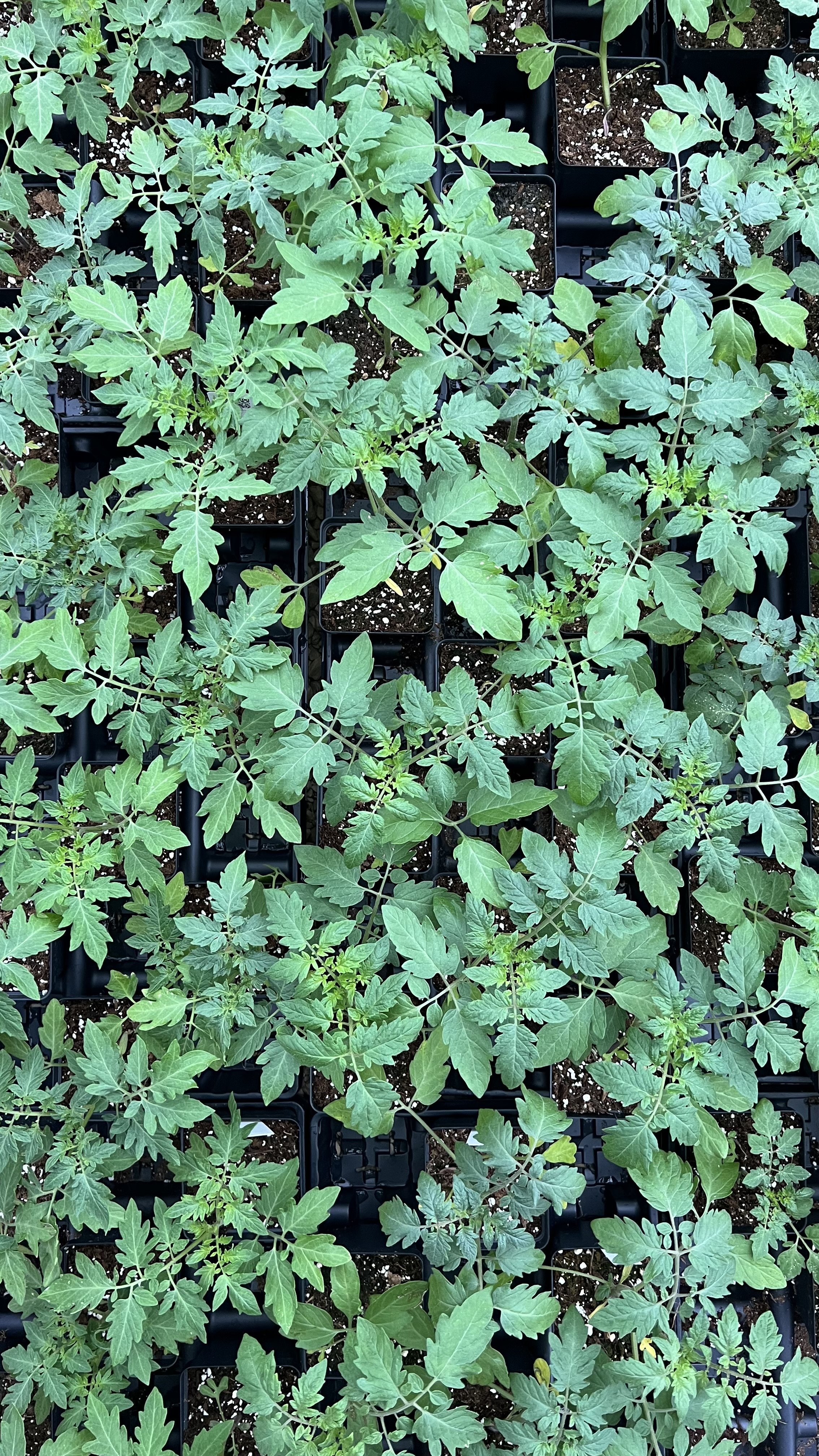
Tomato
Solanum lycopersicum
-
When to Plant: Plant tomatoes after the last danger of frost has passed. Plants will do better as days become more consistently warm. Harden off young plants by placing them outdoors a few days before planting.
Click here to find your frost dates.
Light: Full Sun (Pot varieties tolerate part sun, but need at least 6+ hours of light/day to fruit.)
Soil: Well-drained soil is best, but tomatoes can tolerate heavier soils. If planting in a container, use general-purpose potting mix.
-
Water deeply when the top 3-4” of soil or potting mix is dry.
Cracking in tomato skins can be genetic, but is largely controlled by moisture levels in the soil. Ensure blemish free tomatoes with a regular watering routine.
-
If planted in a container, try a slow-release fertilizer for easy care, following the recommended bottle rates. Sometimes, potting mixes incorporate slow release fertilizer that lasts for 6 months.
Fertilize with a side dressing of granular fertilizer when first planting in the garden and again when plants begin to set fruit. After fruit set begins, fertilize every 2-4 weeks. Watering the granular in deeply after each application.
Avoid using high levels of nitrogen by selecting a fertilizer such as 5-10-10 to support foliage without inhibiting fruit set.
-
Tomatoes can be harvested at any point after reaching a mature size. Harvesting fruit a touch on the green side can protect the fruit from insects, birds and blemish. Fruits will ripen inside on the countertop and still have the same juicy flavor.
-
Tomato hornworms are an inevitable pest to come across in the garden each June. Be on the lookout! If you notice leaves starting to disappear quickly, you’ll have to play a game of I spy to find all the caterpillars and manually remove them.
A Note on Temperature—As tomatoes hail from the tropics, they require temperatures between 75-95 F to have the best fruit set. Too low or too high can reap a fruitless plant. Select varieties/hybrids for their heat resistance.

